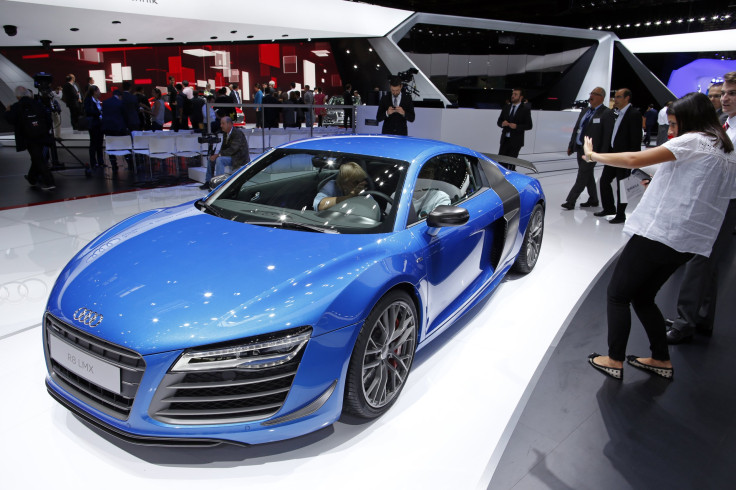Audi Luxury R8 Electric Sports Car: 250 Miles Per Charge, Says Company Tech Chief

It’s too early to tell if the 2015 Audi R8 E-tron will become a Tesla Model S challenger in the luxury electric vehicle segment, but we know now it will have a comparable range. The highly anticipated German mid-engine, two-seat, all-wheel-drive sports car, due out next summer, will come with the choice of either a V8 or V10 engine as well as a plug-in hybrid or a fully electric version, says Ulrich Hackenberg, Audi's head of research and development.
“In the R8 E-tron we will have more than 400km [250-mile] range,” Hackenberg told Britain’s Car magazine from the Paris Motor Show in a report published Monday. The R8 with the conventional internal-combustion engines is due out by next summer, with the electric plug-in and fully electric versions coming out later.
At Audi’s annual press conference in March, Hackenberg suggested the range could be as much as 280 miles, which would have topped the Tesla Model S range of 265 miles. Price will be an important factor in determining Audi’s ability to compete with the Tesla Model S in the luxury EV market. Though no information has been given on the price, Audi says the plug-in hybrid electric and fully electric R8s are aimed at customers of the BMW i8 plug-in hybrid sports car. The i8 is priced in the U.S. at about $137,000, so if the R8 plug-in hybrid or fully electric comes in at a comparable price, it would be well above the Tesla Model S starting price of $81,070.
Audi’s push for alternative drivetrains is part of its effort to meet European carbon dioxide emission-reduction targets. The automaker says it’s on track to reduce carbon dioxide exhaust in its new cars by an average of 25 percent between 2008 and 2016. The European Commission has mandated that automakers must meet an average of 95 grams of CO2 emissions per kilometer by 2020, down from 159 g/km in 2007.
© Copyright IBTimes 2024. All rights reserved.












